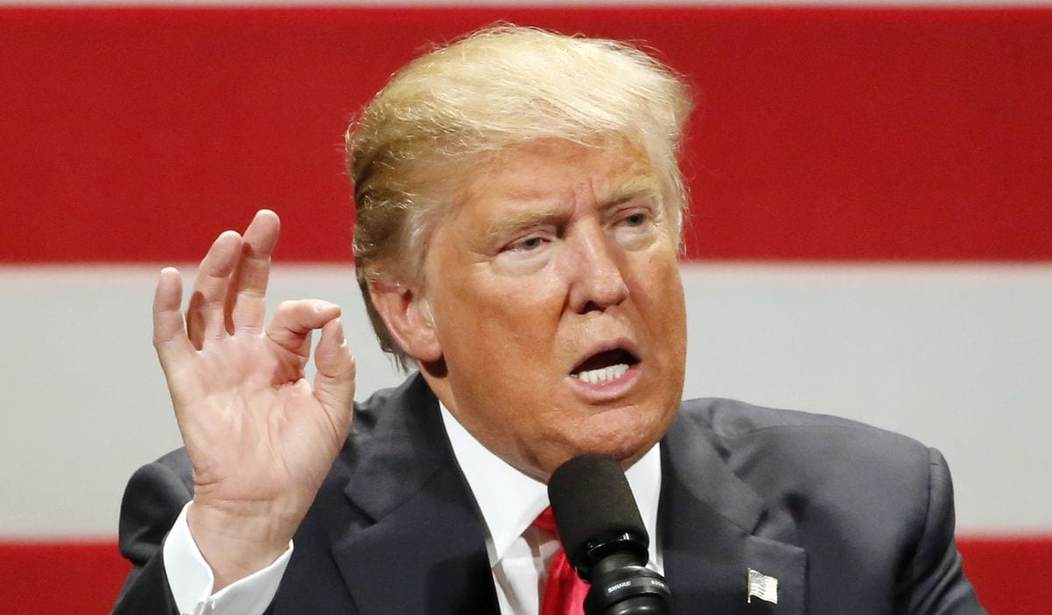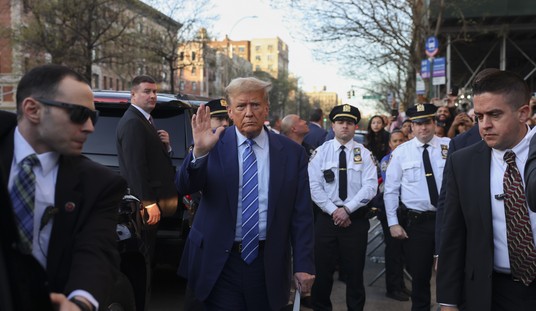Either Donald Trump knows something the rest of us don’t, or he’s delusional.
Given the candidate’s track record, I’d bet on the latter.
Speaking at the California Republican Convention, Trump bragged that, while he was going to try to unify the party, he didn’t need to in order to win the presidency.
For the next 25 minutes, though, Mr. Trump spoke little of California or its June 7 primary. Rather, he wrestled with whether he wanted to begin healing the fractured party he was seeking to lead. Mr. Trump, the Republican front-runner in the presidential race, mocked his conservative critics and his current and former rivals as dumb, “disgusting” and losers. He claimed at least twice that he could win even if the party did not come together. And with some conservatives still uneasy about his beliefs, he breezily dismissed questions about his principles.
“Folks, I’m a conservative, but at this point, who cares? We got to straighten out the country,” he said at a subdued luncheon of party activists who seemed more curious about seeing a celebrity than enthusiastic about their potential presidential nominee.
During the same speech, though, he called for party unity to defeat Hillary Clinton, the likely Democratic standard-bearer.
Mr. Trump’s remarks offered a vivid illustration of the current state of his campaign: As he edges closer to the nomination, he is under pressure to curb his hard-edged language and exude a more statesmanlike demeanor. But the continuing attacks from other Republicans plainly rankle him, and he appears to have little appetite to make peace with his critics.
“Ideally we’re going to be together,” he said. But then he said: “I think we’re going to win even if we’re not together. There are some people I honestly don’t want their endorsement.”
At another point, he said, “There should be and there has to be unity,” before adding: “Would I win, can I win without it? I think so.”
Mr. Trump singled out Senator Ted Cruz, his most formidable remaining rival in the primary campaign, and Jeb Bush, a onetime foe who emerged this week to again assail Mr. Trump, for harsh criticism.
“Does he want to endorse me?” Mr. Trump said of Mr. Bush. “I don’t care. It’s not going to have any impact on whether we beat Hillary Clinton.”
The argument made by Trump supporters — that he has expanded the party by maximizing white male turnout — is true as far as it goes. But a national election is far different than a candidate attracting Democrats in primary states. To move the needle in a national election and attract enough white Democrats to win, Trump must draw millions of votes to his side. Romney won 59% of the white vote in 2012. Trump would have to win nearly 70% of that vote to have a chance — and that’s assuming Trump can significantly increase turnout among whites.
And what Trump adds to the GOP vote total, he also takes away. Far fewer women will vote for him than Romney attracted (44%), and the energized Hispanic community will almost certainly give a larger share of their vote to the Democrat in November (71% for Obama in 2012).
Romney won 93% of the GOP vote in 2012. If Trump can’t unify the party, he will come nowhere near that number, making his road to victory an impossibility. How many GOP voters who cast a ballot for Romney in 2012 will stay home on election day? How many will vote for Hillary?
This is what makes Trump’s braggadocio so delusional. With negatives in the high 60s and important demographic groups energized to vote against him, the candidate better wake up and abandon his delusions about winning without a strong, united party behind him.









Join the conversation as a VIP Member